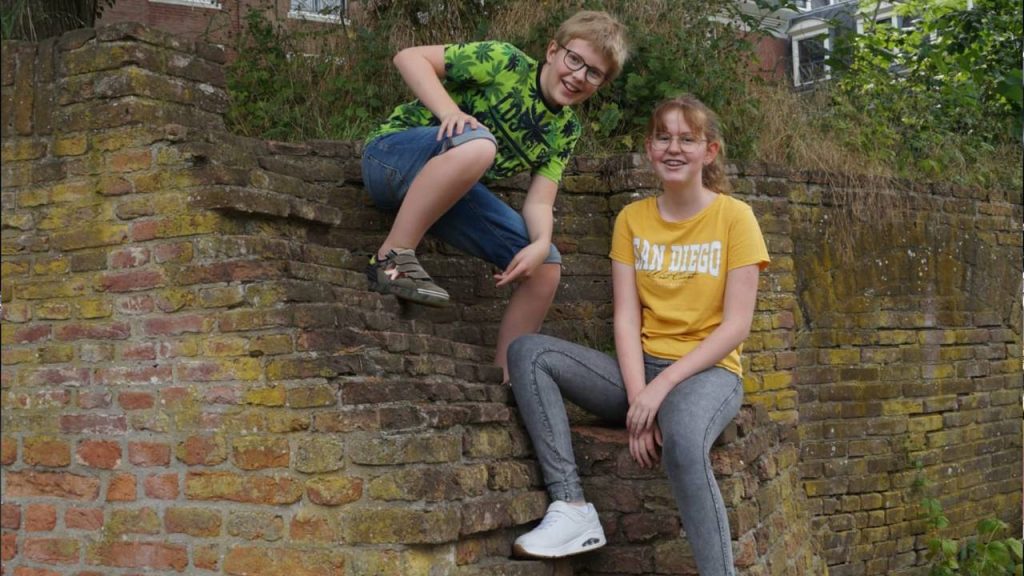When Miranda looks at the pictures on her phone, she sees her cheerful and energetic daughter, Tessa. “I always have that picture,” Helmonds says. “In recent months she’s only been in bed. Our lives have changed in no time.” Two of her four children, Tom (11) and Tessa (13), have COVID-19.
In mid-January, a brother and sister died of Corona. Tom had a sore throat and some headaches, and a few days later Tessa’s test result came back positive too. She mainly has a headache. “Tessa was tired of it,” Miranda describes. When she and her son were walking the dog, he almost fell off his legs. Tom got dizzy and didn’t make it to the end of the street.
It happened to him back in school. He goes out sick in basketball training. Tom has been home since mid-January with severe complaints of fatigue. “He’s still very tired.”
Daughter Tessa also has a lot of problems with the virus. “Tessa is still very ill. She has constant headaches and is only in bed. When she gets up, the headache gets worse. She rarely leaves her room because she can’t stand the noises and noises downstairs. She hasn’t been to school since January. Classes via The Internet is not available to her and she does not always understand the tasks. This is very intense.”
Parents should know that their children are at risk of contracting COVID-19.
It was argued that the omicron variant of the coronavirus was not dangerous to young people. “However, children can also get sick for a long time. We didn’t know that until our children got sick.”
Miranda describes their complaint:
- fatigue,
- hypersensitive to stimuli,
- Headache,
- Stress,
- Unable to focus.
“I miss that interest in the media. Parents need to know that children are also at risk of contracting COVID-19.”
So far, Tom and Tessa have been treated by their GP, occupational therapist, and physical therapist. Without real result. It was said, “The deterioration of Tessa in particular has not stopped yet. It is said that her condition is much less and, for example, still a headache. Take them outside and it will be fine.” According to Miranda, they don’t understand what a lung virus means. “I felt like I had to stand up for my kids all the time.”
Miranda sought help from C-support (a point of support and advice for patients with long-term coronavirus complaints), but the doctor still had to call her back. “I can’t see a pediatrician until October. There is a shortage of pediatricians in Helmond.”
“My cell phone is always on.”
Tom and Tessa’s illness affects the Miranda family. “We have two older kids who also want to move on with their lives. It’s not always possible to take it easy when Tom and Tessa are around. We can’t all leave anymore and we always have to break up.”
Miranda is worried about her sick children. “Tom is stable. However, if he oversteps his bounds, he gets nauseous and gets a headache. The time to go to school is already very tiring. After that he has tired legs for days and his breathing stops quickly.”
According to her mother, Tessa is still taking steps back. She also has to guard her limits and still tire easily. “I don’t dare and I don’t want to get too far. I’m afraid something might happen. It’s not okay. I was at school this week for an interview, and then my cell phone is always on.”
Is she desperate? “It goes up and down, but I hope Tom and Tessa get back to their old selves soon.”

“Total coffee specialist. Hardcore reader. Incurable music scholar. Web guru. Freelance troublemaker. Problem solver. Travel trailblazer.”








More Stories
GALA lacks a chapter on e-health
Weird beer can taste really good.
Planets contain much more water than previously thought